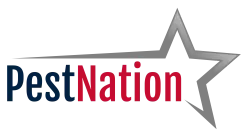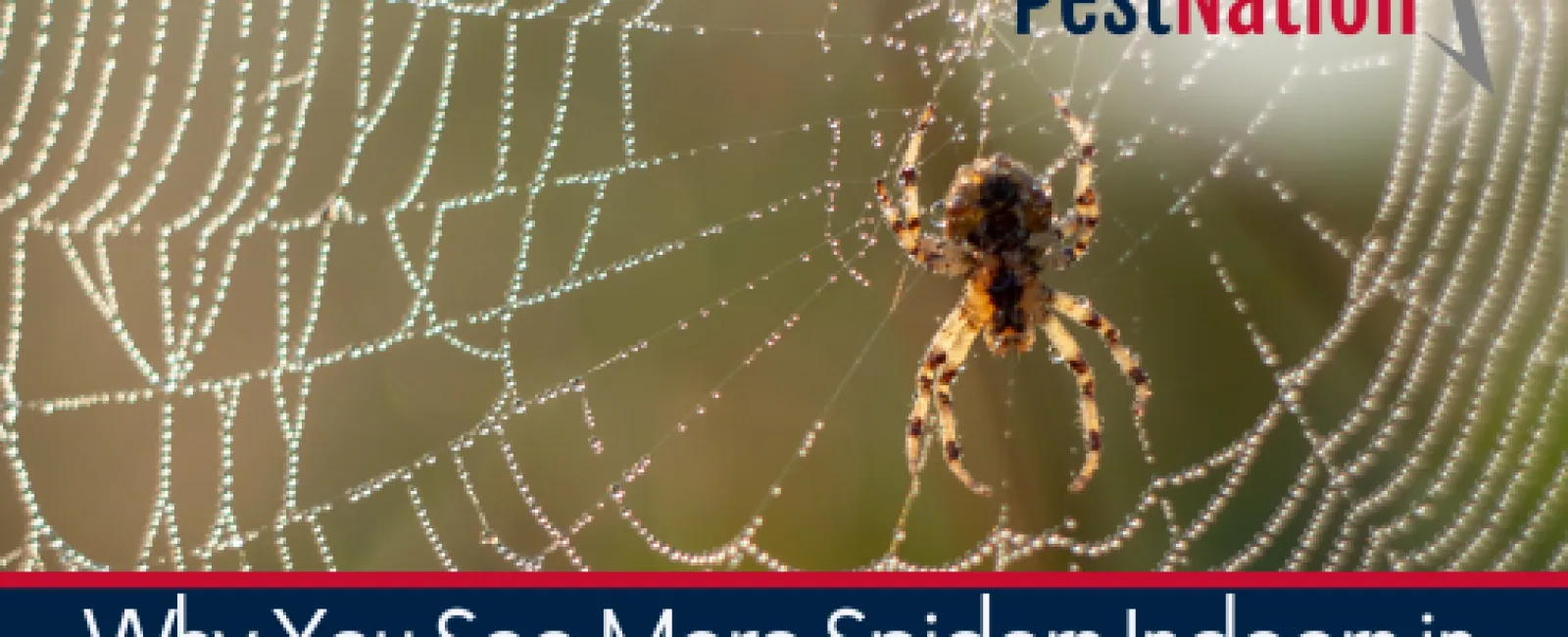As the long, hot days of summer begin to wind down, many homeowners in Atlanta, Charlotte, and Charleston notice something unsettling—more spiders appearing inside their homes. While spotting a spider or two during the year is normal, late summer often brings a noticeable spike in sightings. They may be found lurking in corners, spinning webs near windows, or scurrying across floors, prompting questions about why this happens and whether it signals a bigger pest problem.
The truth is that spider activity indoors often increases in late summer for a combination of reasons. Seasonal changes in weather, pest behavior, and reproduction cycles all play a part. In many cases, an uptick in spiders isn't just a random occurrence—it's a symptom of an underlying pest issue in or around your home. That's why professional solutions like PestNation pest inspections, targeted interior and exterior pest treatments, and ongoing quarterly services are essential for keeping both spiders and the insects they feed on under control.
Why Spiders Become More Visible in Late Summer
While spiders are present year-round, they tend to become more visible in late summer for two primary reasons: mating season and prey availability.
-
Mating Season:
For many spider species, late summer marks the height of their reproductive cycle. Male spiders begin actively seeking females, often wandering into homes as they search for mates. This increased movement makes them more noticeable, even if the total spider population hasn't dramatically increased. -
Increased Prey Activity:
The end of summer is also peak season for many other pests—flies, mosquitoes, ants, and other insects thrive during the warm months. Spiders follow the food. If these pests are active around or inside your home, spiders will take advantage of the easy hunting grounds.
Add to this the fact that late summer weather often drives insects indoors seeking cooler conditions, and you have a perfect storm: more prey inside your home means more spiders coming in to feed.
Common Spiders in the Southeast
Homeowners in Atlanta, Charlotte, and Charleston may encounter several species during late summer, including:
-
Common House Spiders: Web-builders that stay in one place, typically in corners or window frames.
-
Wolf Spiders: Large, fast hunters often found on the floor or in basements.
-
Orb-Weaver Spiders: Known for their large, intricate webs, often near outdoor lights or porches.
-
Brown Recluse (in some areas): A venomous species that hides in undisturbed spaces.
-
Black Widow: A venomous spider recognizable by its shiny black body and red hourglass marking.
While most spiders are harmless and even beneficial in controlling insect populations, certain species can pose health risks or cause fear and discomfort in the home.
How Other Pests Contribute to More Spiders
One of the biggest factors influencing spider activity is the abundance of other pests in and around your property. Spiders are predators, and their population naturally expands when there's an ample food supply. Late summer sees a surge in insect activity for several reasons:
-
Mosquito Season Peaks: Warm temperatures and late-summer rains keep mosquito numbers high. Without proper mosquito treatments—such as PestNation's In2Care systems—yards can become mosquito breeding grounds, attracting spiders that feed on them.
-
Ant and Fly Surges: Ants often move indoors in August seeking food and water, while flies breed rapidly in warm weather. Both are attractive prey for spiders.
-
Rodent Activity: While rodents aren't spider prey, they can indirectly attract them. Rodents often bring fleas, mites, and other small insects that become part of a spider's food chain. Eliminating rodents through rodent exclusion reduces these secondary pests and, in turn, spider numbers.
If you notice more spiders, there's a good chance other pests are present as well—making a PestNation pest inspection the first step in solving the problem.
Why Spiders Come Inside
Beyond food sources, there are several reasons spiders might enter homes in late summer:
-
Temperature Regulation: Hot, dry conditions outside can drive spiders indoors to cooler, more humid spaces.
-
Shelter Seeking: Basements, attics, garages, and crawlspaces offer dark, undisturbed areas perfect for building webs and laying eggs.
-
Attracted by Lights: Outdoor lighting draws in insects, which in turn attracts spiders to entry points like doorways and windows.
-
Open Access Points: Gaps around windows, vents, and doors give spiders easy access inside.
The Role of PestNation in Spider Control
Spider control is most effective when you address both the spiders themselves and the pests they feed on. PestNation offers comprehensive solutions for residents of Atlanta, Charlotte, and Charleston that go beyond temporary fixes.
1. PestNation Pest Inspections
Our detailed inspections identify not only where spiders are living, but also the underlying pest activity fueling their presence. This includes locating entry points, webbing sites, and moisture-rich areas that attract insects and spiders alike.
2. Atlanta, Charlotte, Charleston Interior and Exterior Pest Treatments
We implement interior and exterior pest treatments designed to reduce spider populations while also targeting their prey. Treatments are customized based on the species present and your home's unique layout, ensuring effective, long-term results.
3. Quarterly Services
Since pest activity changes with the seasons, quarterly services provide year-round protection. This is especially important for spider control, as reducing insect populations in spring and early summer helps prevent late-summer spider surges.
4. Rodent and Mosquito Solutions
By integrating rodent exclusion and mosquito treatments into your pest control plan, we eliminate two common sources of secondary pests—making your home less attractive to spiders overall.
Homeowner Tips for Reducing Spider Activity
While professional treatment is the most effective way to address spider infestations, homeowners can take several preventative measures:
-
Seal entry points: Use weather stripping, door sweeps, and caulk around windows, doors, and vents.
-
Reduce outdoor lighting: Use yellow "bug lights" or motion sensors to reduce insect attraction.
-
Declutter storage areas: Keep basements, attics, and garages organized to remove hiding spots.
-
Control moisture: Use dehumidifiers in damp areas to deter both insects and spiders.
-
Clean regularly: Vacuum webs and egg sacs promptly to prevent hatching and re-infestation.
When to Call a Professional
While a few spiders here and there are normal, it's time to call PestNation if you notice:
-
Multiple spiders in different areas of your home.
-
Frequent reappearance of webs despite cleaning.
-
Venomous species like black widows or brown recluses.
-
Signs of a larger insect infestation.
Professional intervention is especially important when dealing with venomous species or recurring infestations. Not only will PestNation safely remove existing spiders, but our team will also implement strategies to prevent future problems.
Why Year-Round Pest Control Works Best
The most effective spider control isn't just about reacting when you see them—it's about prevention. Spiders are part of a larger pest ecosystem, and reducing their food supply is the key to keeping them away. This requires consistent monitoring, treatment, and environmental adjustments that are built into PestNation's quarterly services.
By combining pest inspections, interior and exterior treatments, mosquito treatments, and rodent exclusion, we offer a comprehensive defense plan that keeps your home pest-free no matter the season.
Spiders Are a Symptom, Not the Root Cause
Seeing more spiders indoors in late summer isn't just a seasonal quirk—it's often a sign of increased pest activity around your home. From mating cycles to abundant prey populations, several factors converge to bring spiders inside during August and September. The key to lasting control is addressing the problem at its source: the insects and conditions that attract spiders in the first place.
With PestNation's expertise in Atlanta, Charlotte, and Charleston pest control, you can rest assured that spider problems—and the pests fueling them—are handled with proven, effective solutions. Our interior and exterior pest treatments, pest inspections, and quarterly services provide a long-term barrier against unwanted pests, while our rodent exclusion, In2Care, and mosquito treatments keep your home protected from multiple angles.

